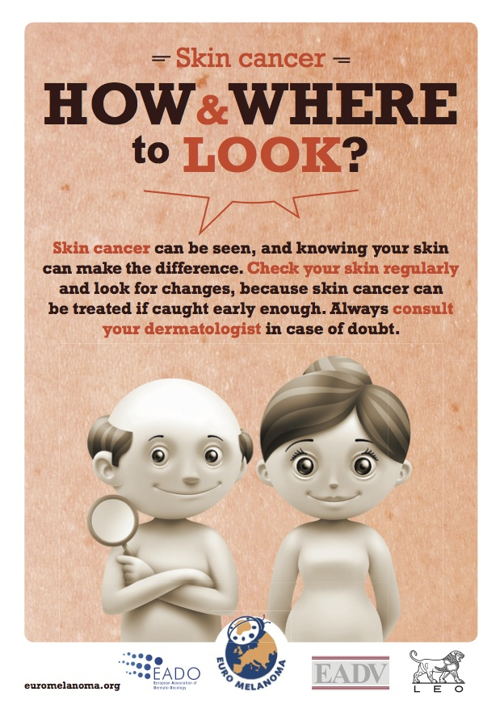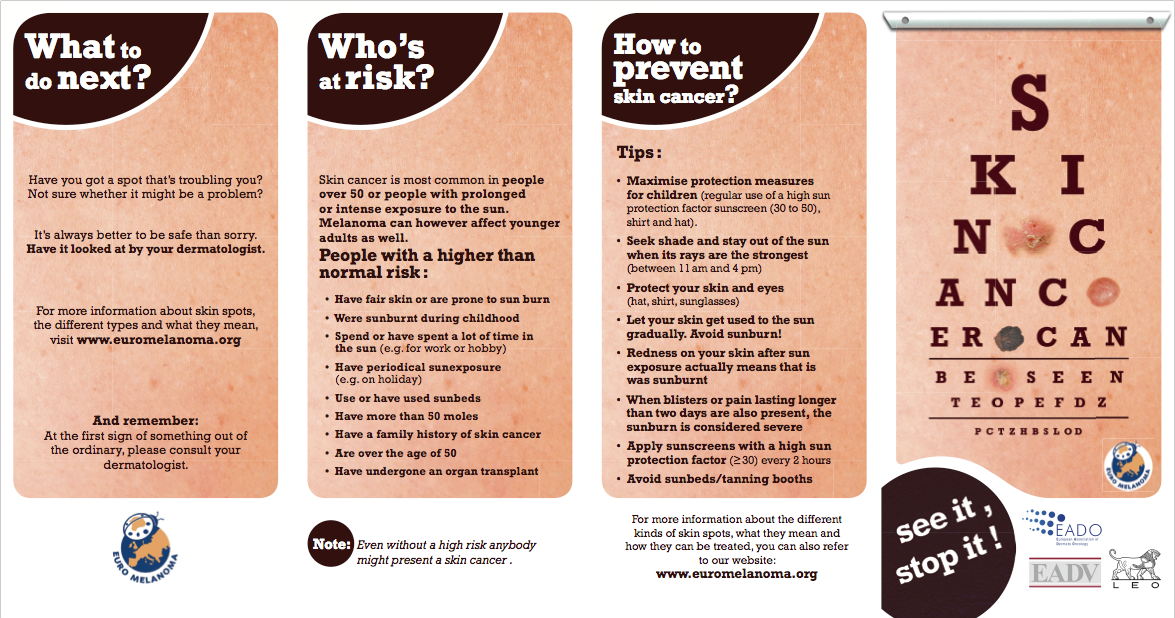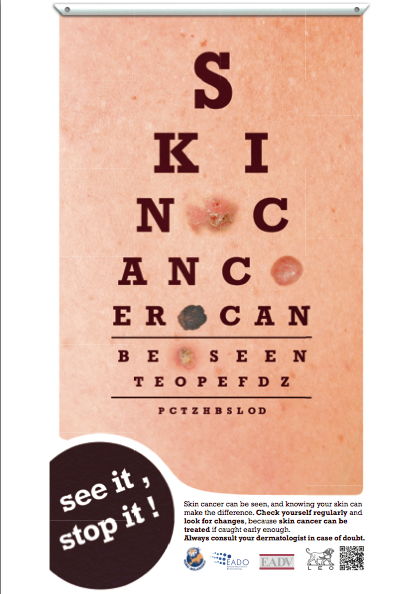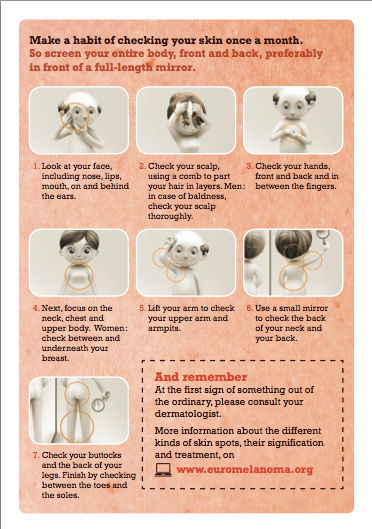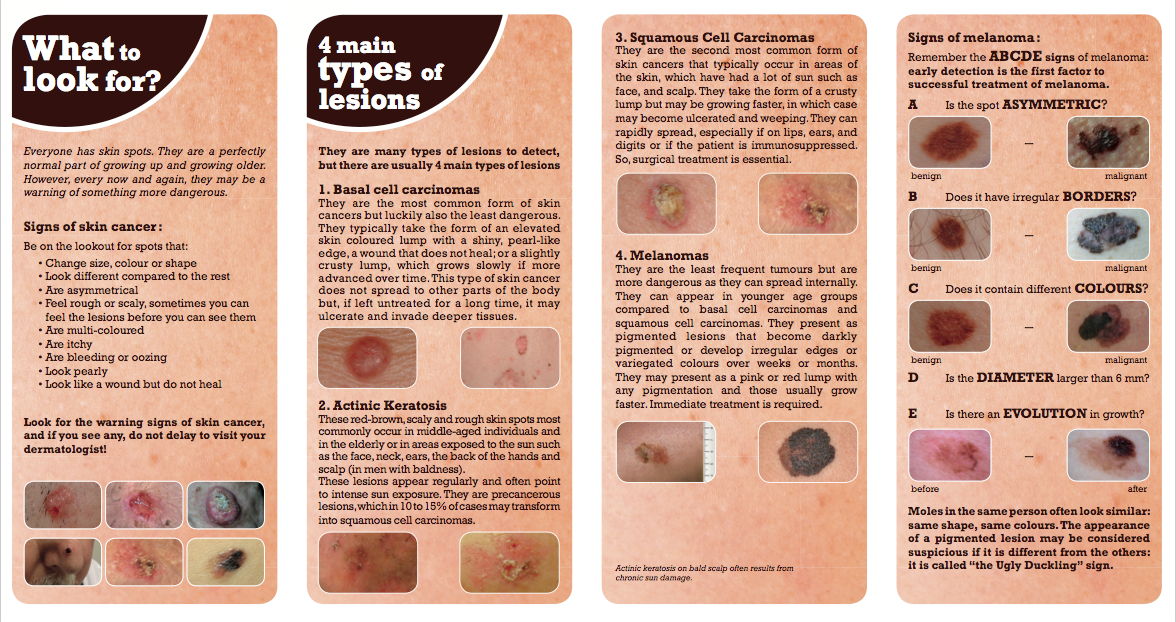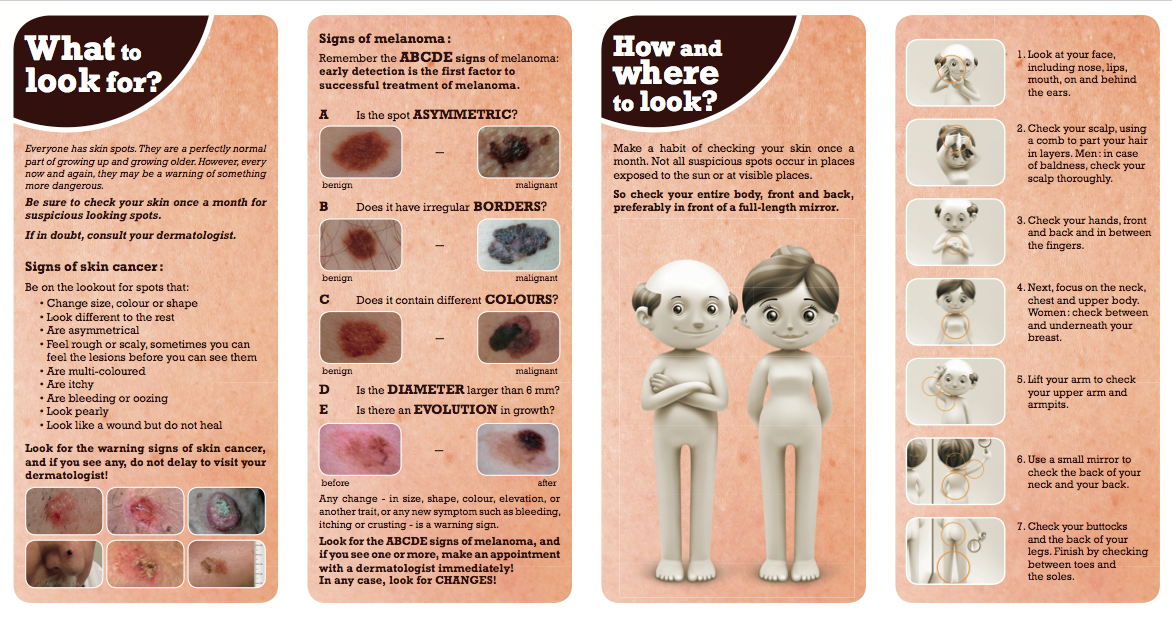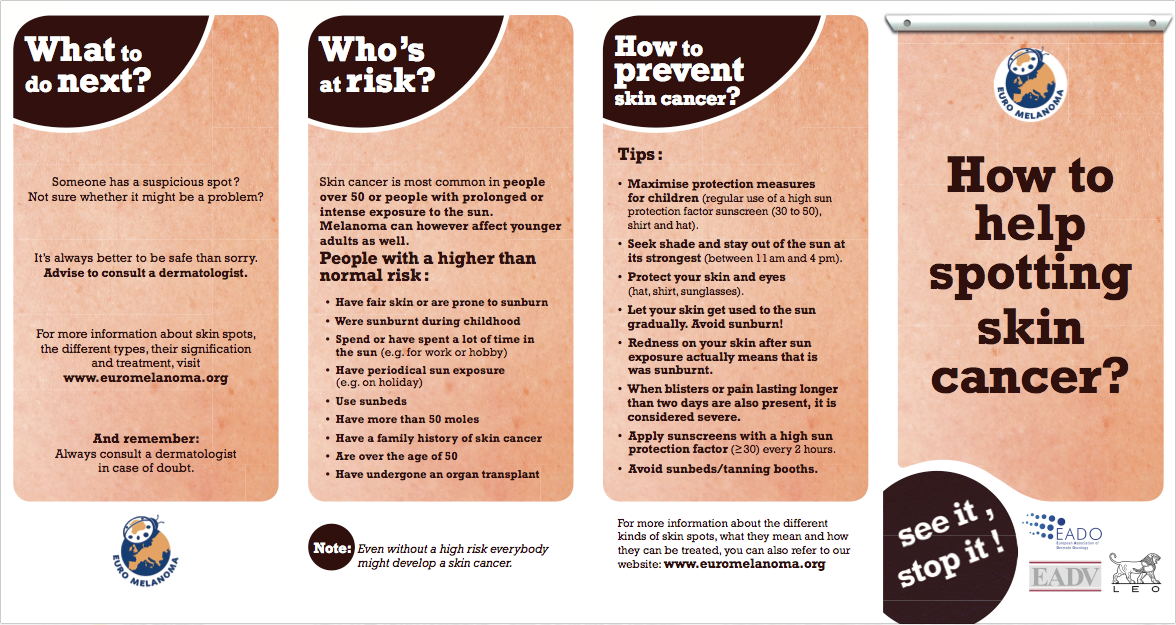Euromelanoma - SEE IT, STOP IT !
Euromelanoma launches 2013 campaign against skin cancer
- During the week of 6th May, Euromelanoma calls for more extensive screening by campaigning with posters & leaflets. Dermatologists also propose free skin screenings to the public.
- The central image of the 2013 campaign, a typical eye-test everyone knows but with a change in it, contains the 4 more frequent spots that has to be seen, from actinic keratosis to melanoma, basal cell carcinomas, and Squamous cell carcinomas
- The Euromelanoma association warns about that skin cancer is one of the fastest growing cancers in Europe (1) despite the fact that it can be seen and therefore diagnosed at an early stage
- Skin cancer is most common in people over 50 (2) or in people with prolonged or intense exposure to the sun (3). 1 in 6 persons to develop skin cancer during their lifetime (4)
- All additional information about skin cancer, prevention tips, UV and tanning but also this year campaign material can be found on www.euromelanoma.org
Brussels, March 26th - Euromelanoma, the annual campaign organised by dermatologists, launches its offensive aimed at raising skin cancer awareness and the easy and free way to detect suspicious spots at the earliest possible stage. In response to reports of rising instances of potentially life-threatening skin cancers, the campaign focuses on the importance of early diagnosis by doctors and other healthcare and wellness professionals. 1 in 6 Europeans are now expected to develop skin cancer during their lifetime (4). During this week, free screenings for the public will be held in hospitals, private practices and in public places. Moreover, a standard questionnaire will be used in all the European participating countries (31) to enable information to be pooled from 140.000 patients from all over Europe (5).
See it, stop it! Knowing your skin can make the difference
Skin spots are perfectly normal. Everybody has them. However, every now and again, skin spots can be a sign of something much more sinister. Which is why Euromelanoma’s 2013 campaign focuses on the importance of finding and treating potentially dangerous skin spots early, before they become a problem. Skin cancer has the advantage over other forms of cancer in that it can be seen. Under the banner “Skin cancer can be seen, and knowing your skin can make the difference”, the new campaign included a number of communication tools (poster leaflets) designed to teach people what, where and how to see. “The image of the eye test, a typical test everyone knows but with a little change in it, illustrates the 4 main spots that have to be seen on the skin. It talks to everyone and it catches the attention of people”, says Professor del Marmol, MD,PhD, Euromelanoma Europe Chair.
Knowing your own skin can make the difference! To reinforce the importance of people’s implication and teach them how and where to look, this year campaign also sees the apparition of a Skin Self Check postcard. Two new characters explain clearly the 7 easy steps people have to accomplish a complete skin self-check. “ An easy, free and quick check that worth to be done as an early detection of a suspicious spot increase the chance of recovery and survival. We would advice people to self-check their entire body for suspicious-looking spots every 3 months in front of a mirror”, add Professor del Marmol.
Professor del Marmol concludes: “Skin cancer is one of the most common forms of cancer. But fortunately, it is also one of the easiest to diagnose because it can be seen! The problem is that many people in the healthcare and wellness sector – from doctors to nurses to aestheticians to masseurs – look at their patients and clients every day without really “seeing”. The purpose of this campaign is to remind professionals and general public about what to see and how to see.”
Who is at risk?
People who have fair skin or are prone to sunburn; people who were sunburned during childhood; people who spend a lot of time in the sun (e.g. for work or hobby); people who are exposed to intense sun for short periods (e.g. on holidays); people who use sunbeds; people with more than 50 moles; those who have a family history of skin cancer; people who are over the age of 50 and those who have undergone an organ transplant.
--- end ---
Information about the 4 most frequent skin lesions - actinic keratosis, basal cell carcinomas, Squamous cell carcinomas and Melanoma - can be found at the end of the release. Illustrations can be found on the following links:
- http://www.euromelanoma.org/actinic-keratosis
- http://www.euromelanoma.org/basal-cell-cancer
- http://www.euromelanoma.org/squamous-cell-cancer
- http://www.euromelanoma.org/melanoma-0
For more information about the various types of skin spots and how to identify them, visit the Euromelanoma website www.euromelanoma.org.
